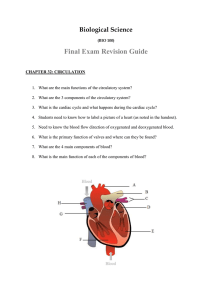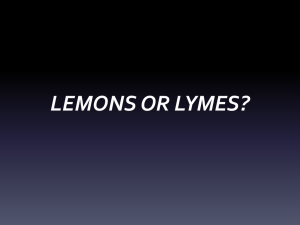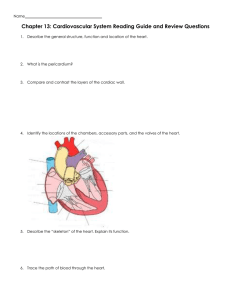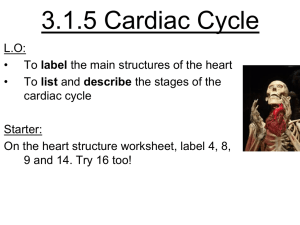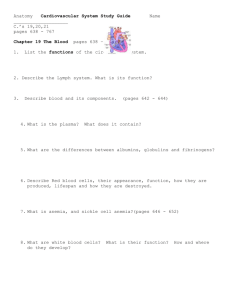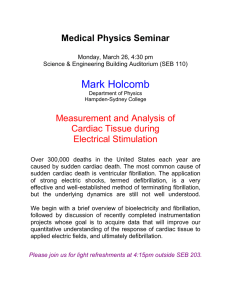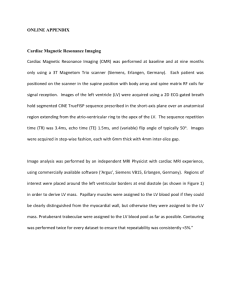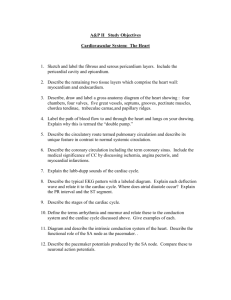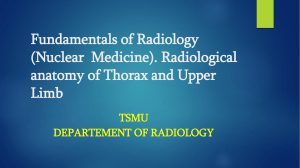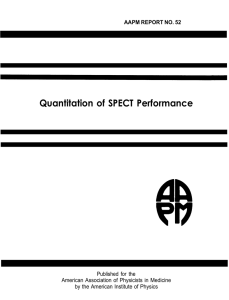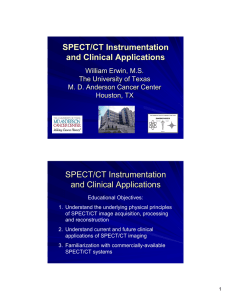Ms Karen Borg Grima – Assistant Lecturer
advertisement
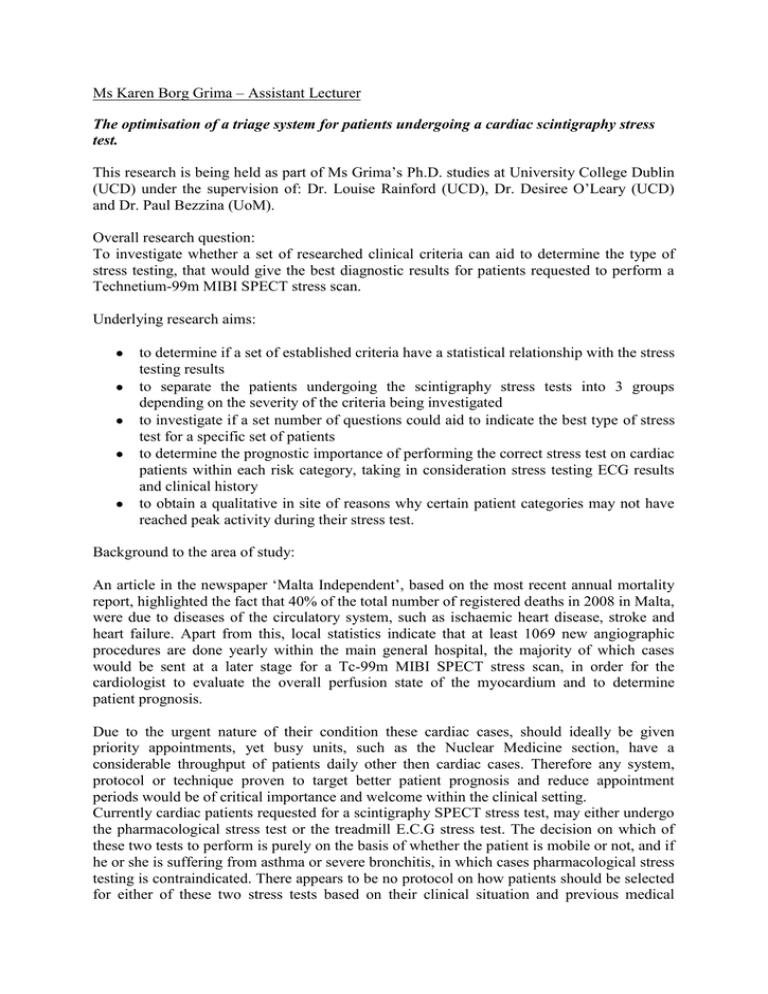
Ms Karen Borg Grima – Assistant Lecturer The optimisation of a triage system for patients undergoing a cardiac scintigraphy stress test. This research is being held as part of Ms Grima’s Ph.D. studies at University College Dublin (UCD) under the supervision of: Dr. Louise Rainford (UCD), Dr. Desiree O’Leary (UCD) and Dr. Paul Bezzina (UoM). Overall research question: To investigate whether a set of researched clinical criteria can aid to determine the type of stress testing, that would give the best diagnostic results for patients requested to perform a Technetium-99m MIBI SPECT stress scan. Underlying research aims: to determine if a set of established criteria have a statistical relationship with the stress testing results to separate the patients undergoing the scintigraphy stress tests into 3 groups depending on the severity of the criteria being investigated to investigate if a set number of questions could aid to indicate the best type of stress test for a specific set of patients to determine the prognostic importance of performing the correct stress test on cardiac patients within each risk category, taking in consideration stress testing ECG results and clinical history to obtain a qualitative in site of reasons why certain patient categories may not have reached peak activity during their stress test. Background to the area of study: An article in the newspaper ‘Malta Independent’, based on the most recent annual mortality report, highlighted the fact that 40% of the total number of registered deaths in 2008 in Malta, were due to diseases of the circulatory system, such as ischaemic heart disease, stroke and heart failure. Apart from this, local statistics indicate that at least 1069 new angiographic procedures are done yearly within the main general hospital, the majority of which cases would be sent at a later stage for a Tc-99m MIBI SPECT stress scan, in order for the cardiologist to evaluate the overall perfusion state of the myocardium and to determine patient prognosis. Due to the urgent nature of their condition these cardiac cases, should ideally be given priority appointments, yet busy units, such as the Nuclear Medicine section, have a considerable throughput of patients daily other then cardiac cases. Therefore any system, protocol or technique proven to target better patient prognosis and reduce appointment periods would be of critical importance and welcome within the clinical setting. Currently cardiac patients requested for a scintigraphy SPECT stress test, may either undergo the pharmacological stress test or the treadmill E.C.G stress test. The decision on which of these two tests to perform is purely on the basis of whether the patient is mobile or not, and if he or she is suffering from asthma or severe bronchitis, in which cases pharmacological stress testing is contraindicated. There appears to be no protocol on how patients should be selected for either of these two stress tests based on their clinical situation and previous medical results. This may indicate that patients who are not managing to reach peak activity during the treadmill stress tests may in reality not be undergoing the ideal test for the best prognostic results. In contrast to the above debate, literature has suggested for many years that the results of myocardial perfusion scintigraphy may be unsatisfactory if the level of exercise achieved by the patient is insufficient (2). Thus although 99mTc-Sestamibi stress SPECT MPS provides incremental information for prognostic evaluation of patients with suspected or diagnosed CAD, future research should focus on identifying high risk subsets within this group, with a set of clinical criteria such as maybe blood test results (3 ; 4). Categorising such cardiac patients prior to their scintigraphy stress test may ensure that each risk group of patients undergoes the best stress test for their clinical scenario whilst for each case aggressive secondary preventive measures can be instituted to prevent future hard cardiac events (3).
